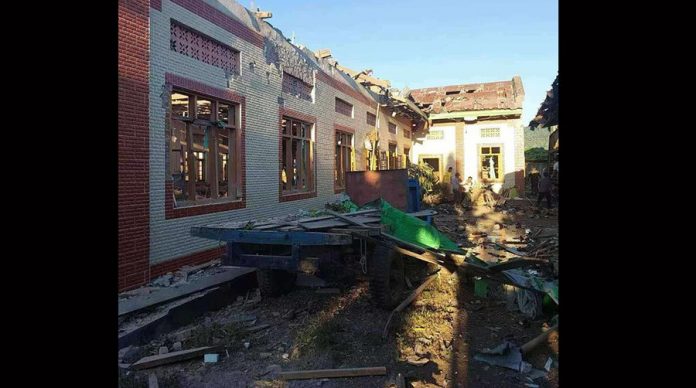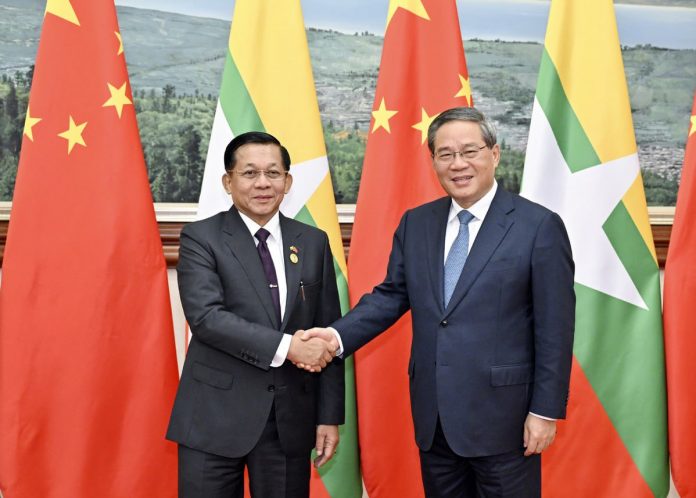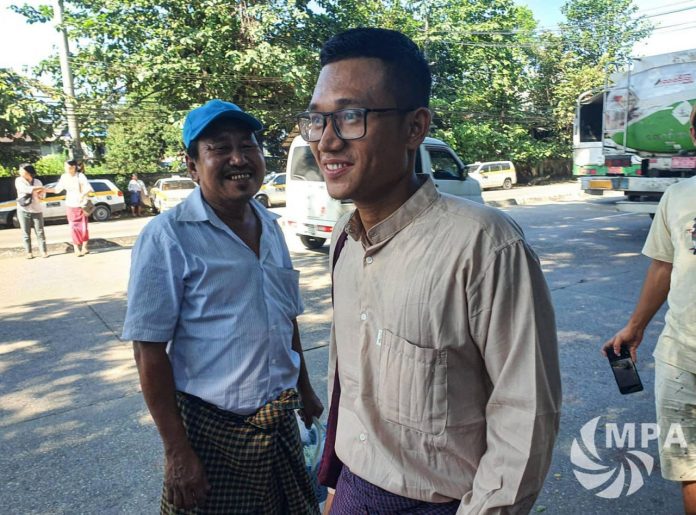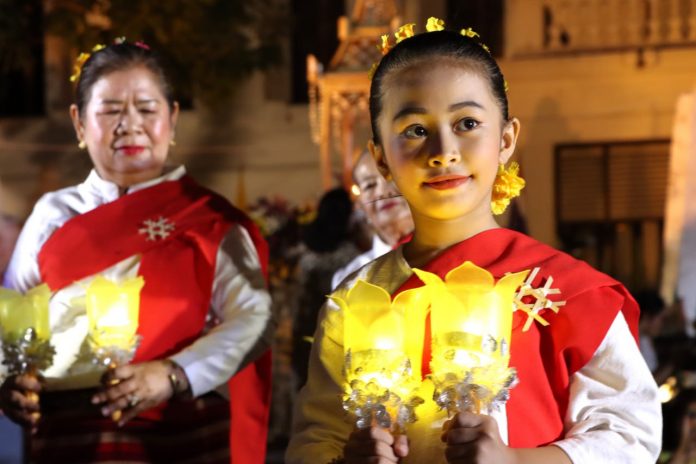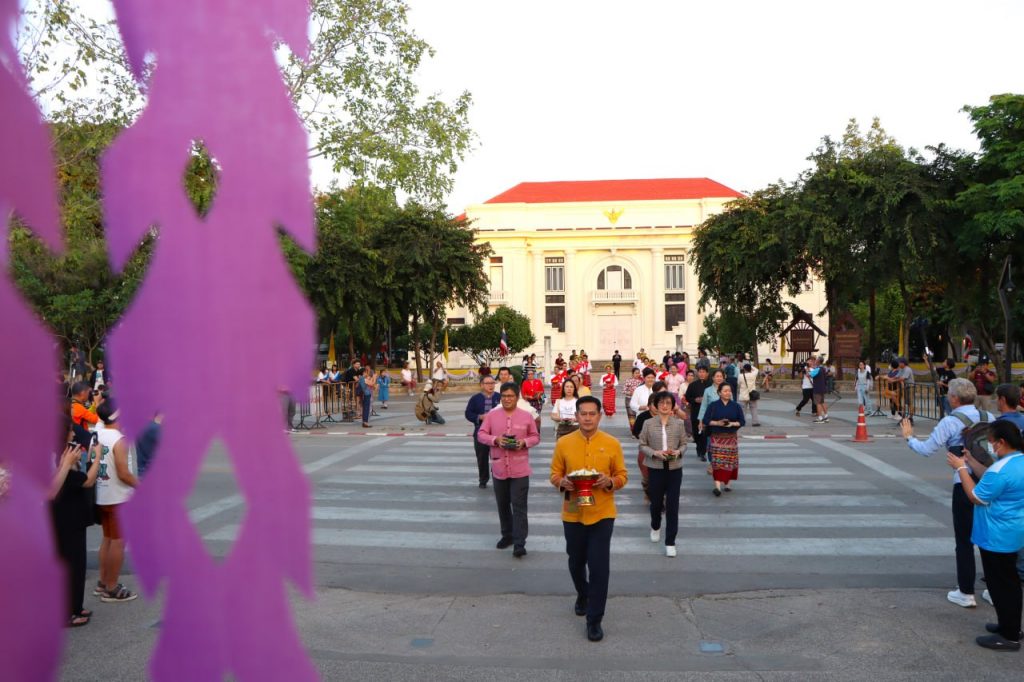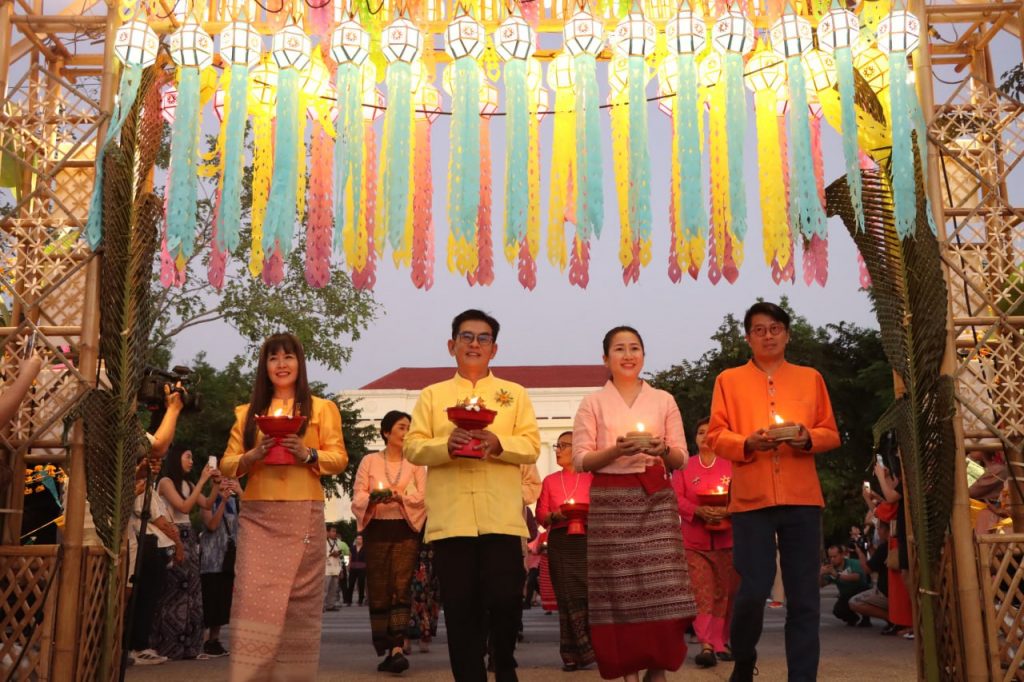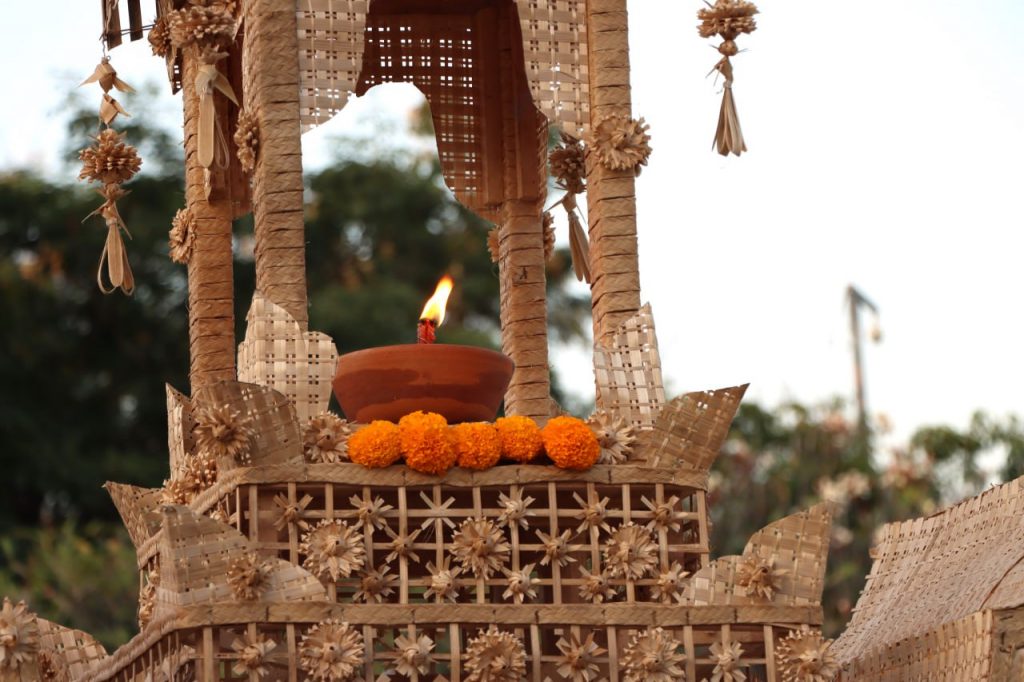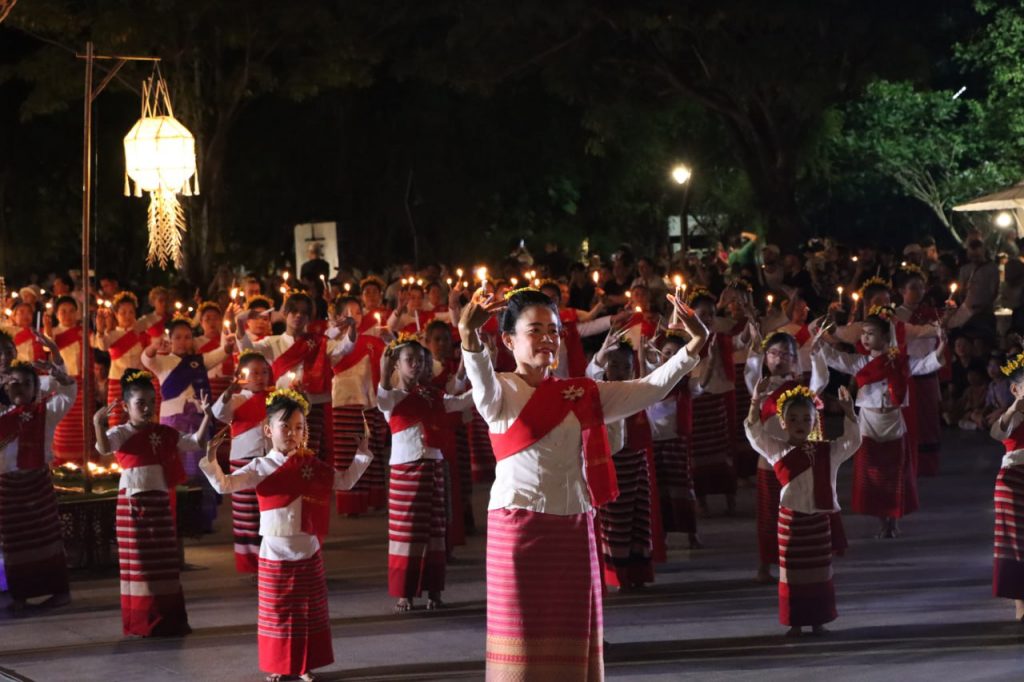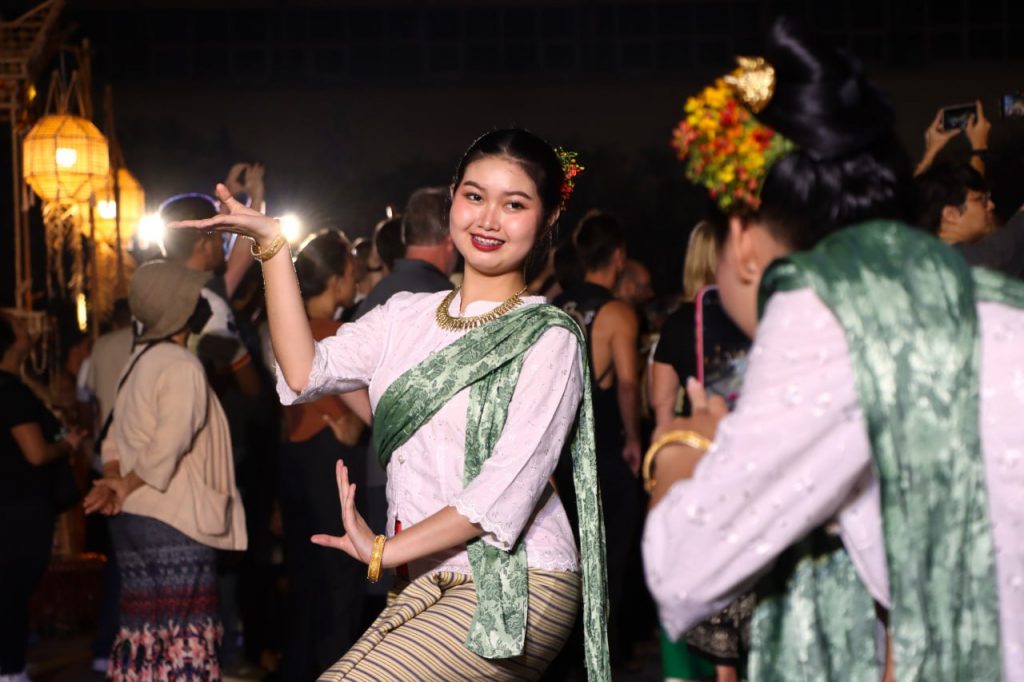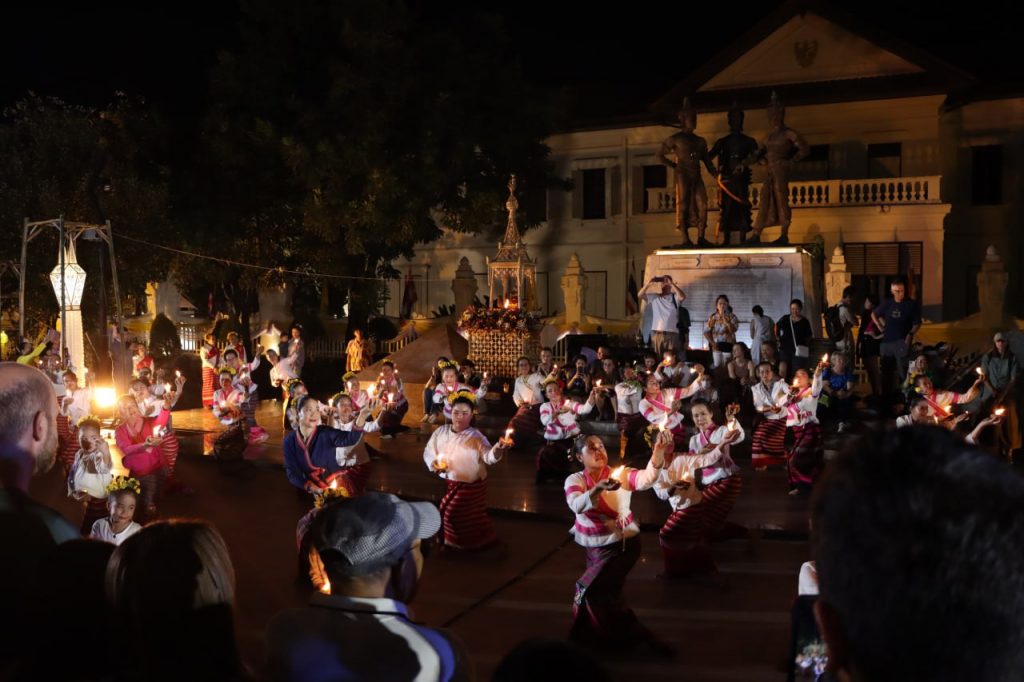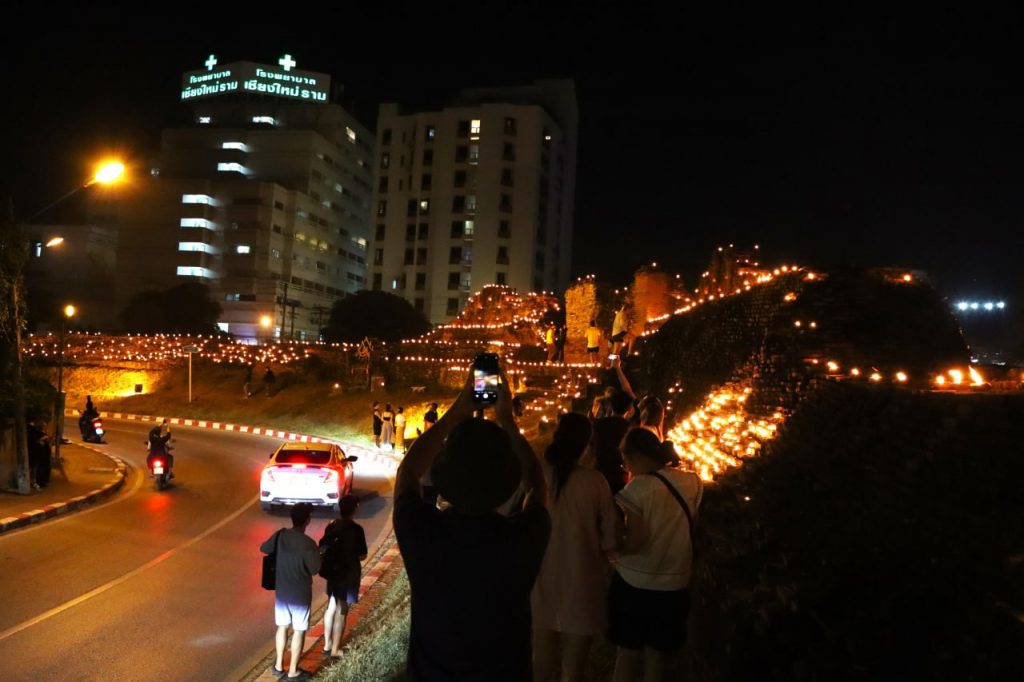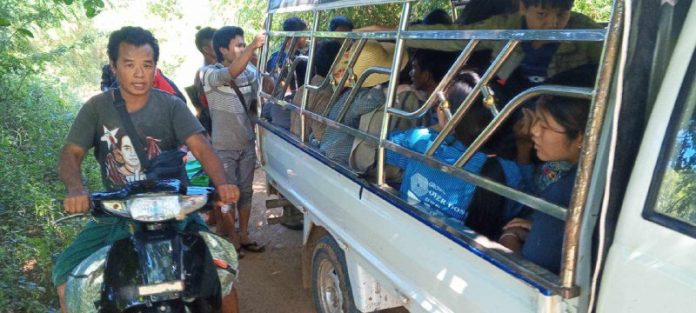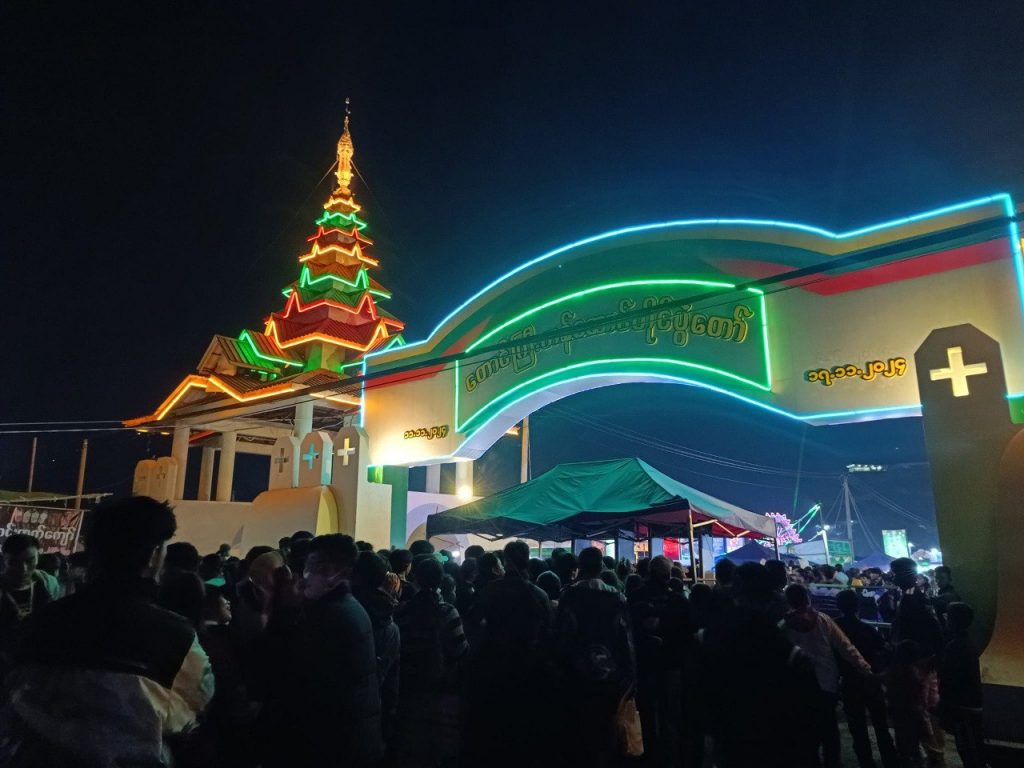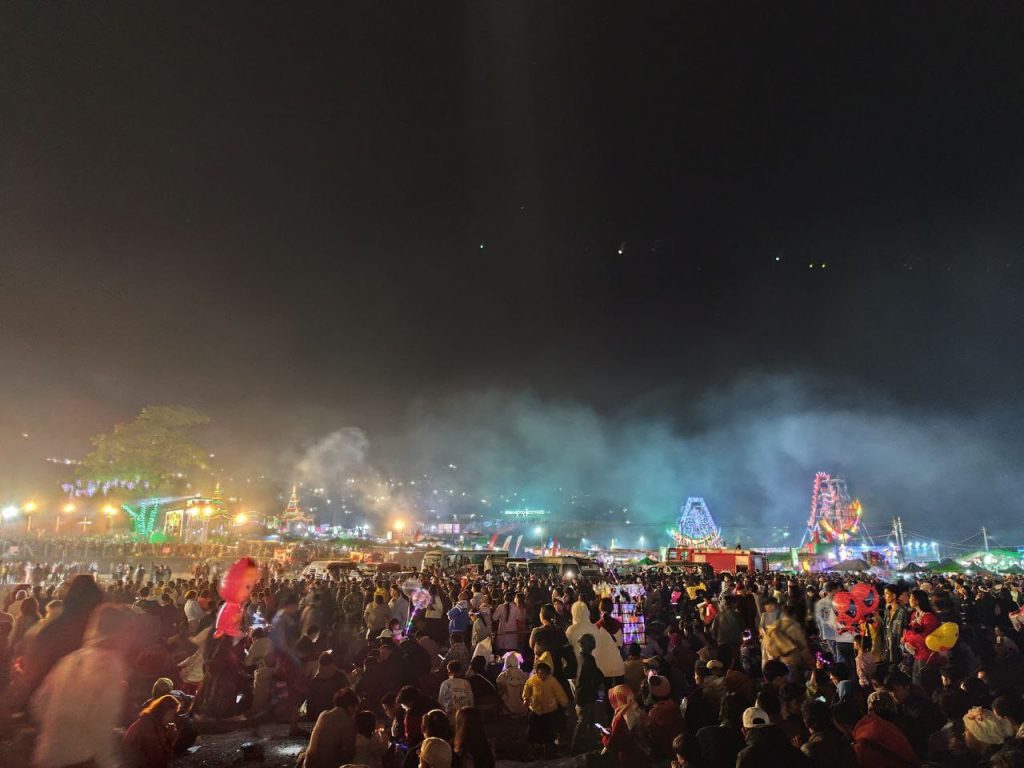Guest contributor
Myo Yan Naung Thein
Regime leader Min Aung Hlaing visited Kunming, China for regional summits earlier this month. It was his first trip to the country since the 2021 military coup, and was viewed as a significant indicator of Beijing’s position regarding Naypyidaw, which has come under military control since the coup.
Over the last three years, China has approached its diplomatic relations with caution. Notably, in the first year after the coup, Chinese Minister of Foreign Affairs Wang Yi did not meet with Min Aung Hlaing during the 2022 Lancang-Mekong Cooperation (LMC) Ministerial Meeting in Naypyidaw.
Following significant setbacks during the Brotherhood Alliance’s Operation 1027 launched on Oct. 27, 2023, the military lost control of large swathes of northern Shan State, enabling revolutionary forces to take control of key trade routes with China. This situation positioned them closer to the potential for launching large-scale operations in central Myanmar, raising concerns about a possible full collapse of the military.
The Chinese government began to show increased concern. In response to the military’s losses, Beijing pressured the Brotherhood Alliance to sign the Haigeng Agreement and an immediate ceasefire with the military regime.
However, when the military violated this ceasefire by conducting airstrikes, the Brotherhood Alliance had to shift to defensive strategies. In reaction to the escalating conflict, Chinese authorities closed the border gates in areas under the control of the Brotherhood Alliance and the Kachin Independence Army (KIA), which launched its own offensive on March 7.
In addition to closing its borders, it restricted the flow of food, medicine, ammunition, and supplies to the Brotherhood Alliance members, which includes the Myanmar National Democratic Alliance Army (MNDAA) and the Ta’ang National Liberation Army (TNLA).
China has pressured the Brotherhood Alliance’s ally. the United Wa State Army (UWSA). It rules “Wa State” – officially known as the Wa Self-Administered Zone located along the borders of China and Thailand – to block the flow of goods and supplies to these areas seized by the Brotherhood Alliance.
Beijing has closely monitored the UWSA to ensure compliance with its directives. China’s Special Envoy Deng Xijun has made several visits to Myanmar, and Chinese Foreign Minister Wang Yi met with Min Aung Hlaing directly. It has since formulated a transition plan aimed at legitimizing the military regime in Naypyidaw.
This shift in China’s approach can be traced back to leaked minutes from a meeting between Deng Xijun and UWSA leaders in August 2024. During these discussions, Deng Xijun expressed concern that if the military were to collapse and a power vacuum were to arise, the U.S. and E.U. might intervene in Myanmar’s affairs through the National Unity Government (NUG), which China perceives as being backed by the U.S. and its allies.
However, the NUG itself was formed by elected parliamentarians, ethnic representatives, and members of the uprising to the 2021 coup. Many revolutionary forces within the NUG have expressed disappointment with the U.S. and E.U., feeling that they have not effectively helped Myanmar’s pro-democracy movement in the last few years since the military ousted and arrested the entire leadership of the National League for Democracy (NLD) government, including President Win Myint and State Counsellor Aung San Suu Kyi – both held incommunicado since Feb. 1, 2021.
China extended an invitation to Min Aung Hlaing to attend the Greater Mekong Subregion and the Ayeyarwady-Chao Phraya-Mekong Economic Cooperation Strategy held in Kunming, which is a multilateral gathering rather than a bilateral meeting in the capital Beijing.
This invitation does not appear to recognize him as the official leader of Myanmar, but rather acknowledges him as the current ruler. Thus, Min Aung Hlaing’s visit to China can be viewed from a perspective of engagement rather than formal recognition. At the same time, China appears to be concentrating on transforming the military into a legitimate government.
During his visit, Min Aung Hlaing met with Chinese Premier Li Qiang. Reports from China’s state news agency Xinhua and Myanmar’s regime-run Global New Light of Myanmar indicated that Li Qiang expressed China’s support for the military’s political transition plan, which includes a five-point roadmap and elections scheduled for next year.
He underscored the significance of advancing infrastructure projects linked to the China-Myanmar Economic Corridor (CMEC), part of China’s broader Belt and Road Initiative (BRI), as well as the need for the regime to ensure the safety of Chinese investments and personnel in Myanmar.
The discussions also addressed the ongoing conflict with revolutionary groups, with Li Qiang reiterating China’s commitment to Myanmar’s sovereignty and territorial integrity, and emphasizing that border management should remain under the authority of the respective governments.
This clearly shows China’s focus on facilitating Min Aung Hlaing’s transition into a recognized head of state. The dialogue between Premier Li Qiang and Min Aung Hlaing suggests that China is viewing the military leadership as a means to maintain influence in the region and support its BRI projects.
In August, at the LMC Foreign Ministers’ Meeting, Wang Yi outlined three points for Myanmar, addressing the regime Foreign Minister Than Swe: Myanmar should not be (1) subject to civil strife, (2) detached from the Association of Southeast Asian Nations (ASEAN) family, and (3) infiltrated or interfered with by external forces. This further illustrates China’s approach toward Myanmar and its influence over the regime.
Leaked minutes from a meeting between the Chinese special envoy and leaders of the UWSA in August reveal a significant level of Chinese involvement in Myanmar’s internal affairs. According to these documents, the UWSA leaders expressed a strong sense of apprehension towards China, indicating a willingness to comply with its directives.
The extent of China’s influence over the UWSA is evident, as the Chinese government asked it to restrict the flow of goods from the “Wa State” to the Kokang and Ta’ang regions under MNDAA and TNLA control. It was noted that the UWSA adhered to these instructions, with Deng Xijun expressing satisfaction with their compliance.
The “Wa State” which is under scrutiny by China, is part of Myanmar, and this oversight suggests that China views Myanmar as significantly within its sphere of influence.
Additionally, China appears to expect that other regions, such as the Kokang, Ta’ang, and Kachin State, will also comply with its directives. This situation underscores China’s substantial control over Myanmar’s political landscape.
This relationship provides China with an opportunity to influence the regime’s actions and decisions. As long as the regime maintains its authority, Myanmar can be viewed as having a strong alignment with China’s interests.
Deng Xijun remarked that the Myanmar military played a foundational role in the country’s establishment and asserted that the NLD and the NUG cannot take on the military’s role. He also expressed China’s backing for the regime’s efforts to maintain stability in Myanmar. He also noted that the visit of Wang Yi was intended to demonstrate support for Naypyidaw.
The statement made by the Chinese special envoy is totally wrong and potentially harmful, which could heighten tensions between the people of Myanmar and Beijing. Observers suggest that Deng Xijun’s remarks may reflect either a limited understanding of the complexities of the situation in Myanmar or a deliberate attempt to present a favorable perspective on the regime.
Myanmar’s primary issue today is the military’s presence, which began in 1962 when General Ne Win overthrew Prime Minister U Nu, leading to the oppression of ethnic minorities and civil war. The military also suppressed a democratic movement in 1988, complicating the political landscape.
Under military rule, corruption and mismanagement severely impacted the economy. A significant change occurred in 2010 when Aung San Suu Kyi was released from house arrest, prompting national reconciliation efforts. The NLD under Suu Kyi, won a landslide victory in the 2015 elections, creating hope for political and social progress.
However, after the NLD’s 2020 electoral success, Min Aung Hlaing accused the NLD of fraud, claims that were widely viewed with skepticism, and staged the 2021 coup. Local and international monitors found no evidence to support these allegations.
Widespread protests in Myanmar, which responded to the military seizure of power, were met with a violent crackdown, resulting in the deaths of peaceful demonstrators. In response, many citizens began an armed uprising against the regime.
The current crisis in Myanmar is largely attributed to the actions of the military. A commonly discussed solution is the disbandment of the current military apparatus and the establishment of a new force intended to protect the people of Myanmar.
China’s stance on the side of the military means that the population of Myanmar is being turned away and has led to growing discontent. Regardless of the support China provides the regime, there is no way it can prevent the fall of the military.
If Beijing continues to back Naypyidaw, it may lead to increased resentment among the people. This growing opposition could strain long-term relations between China and Myanmar, two neighboring countries with historical ties. There remains an opportunity for China to reconsider its approach to foster better relations moving forward.
In 2015, I attended the first Trans-Himalaya Forum in China, where I was invited to speak in my capacity as the secretary of the Central Committee for Research and Strategic Studies of the NLD party. I would like to repeat a line from the speech I gave.
“The government of a country is always changing. The people don’t change.”
Myo Yan Naung Thein
In order to have a long-term friendship between countries, especially two countries bordering each other like China and Myanmar, the people of one country need to like their neighboring government. When thinking about policies regarding Myanmar, China needs to consider the perspectives and wishes of the Myanmar people.
Beijing cannot assume a positive relationship with the people of Myanmar simply because it aligns with the leadership, which is viewed as illegitimate by the people of Myanmar.
Myo Yan Naung Thein is the visiting researcher and co-chair of the Burmese Democratic Futures Working Group, University of Virginia. He has traveled across the U.S. speaking to students, church groups, policymakers and members of the Myanmar diaspora to build support for democracy and the return to civilian rule.
DVB publishes a diversity of opinions that does not reflect DVB editorial policy. We’d like to hear what you think about this or any of our stories: [email protected]


